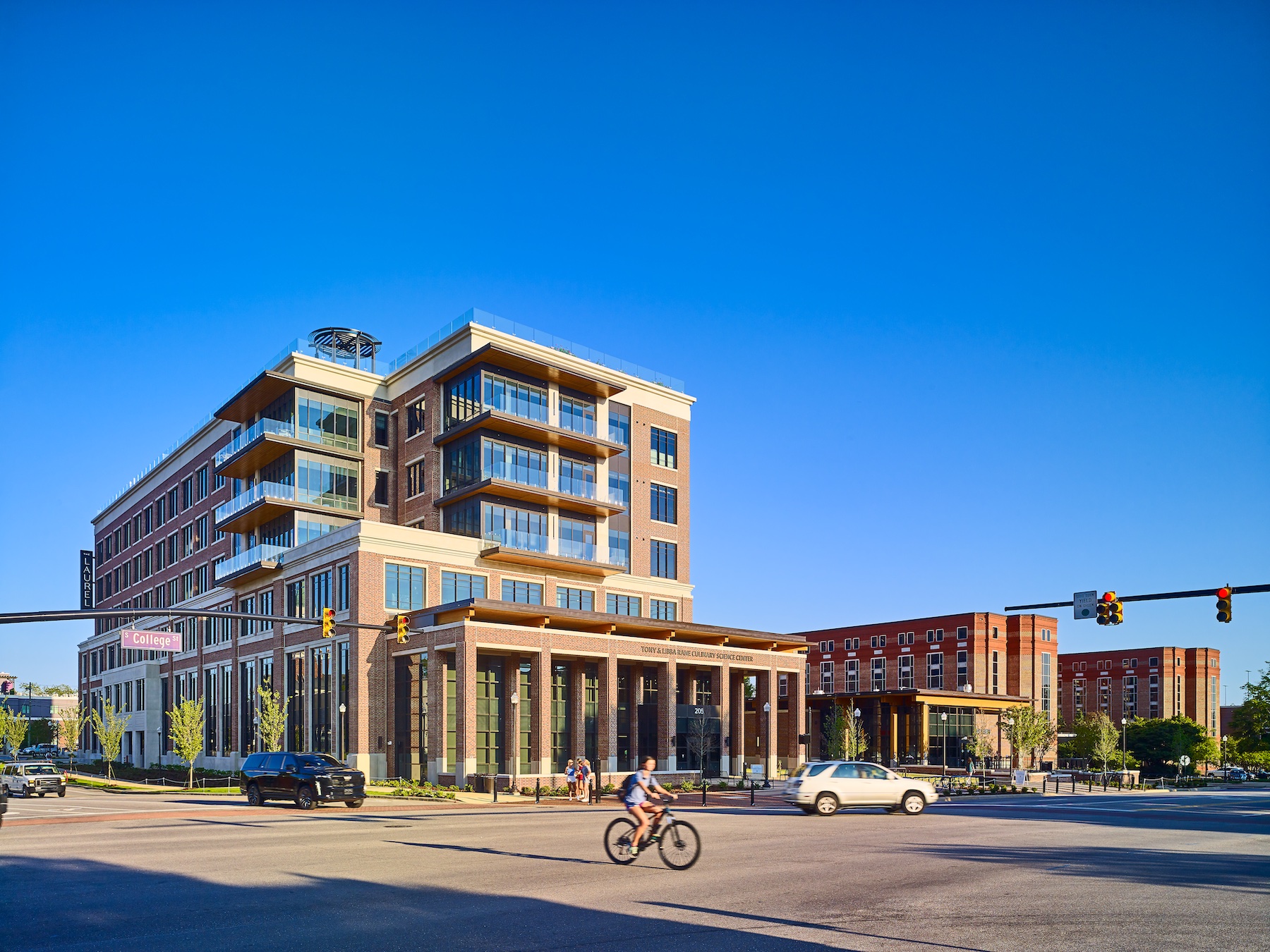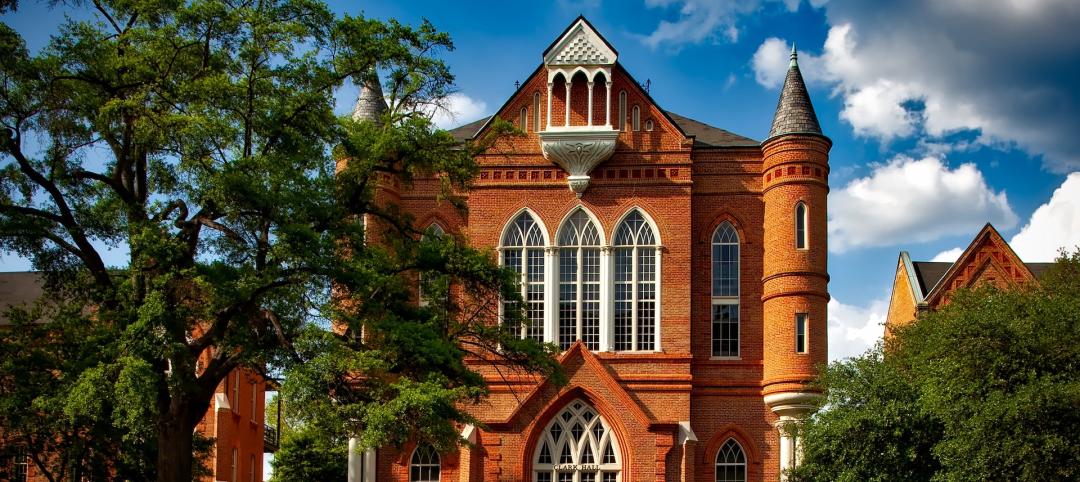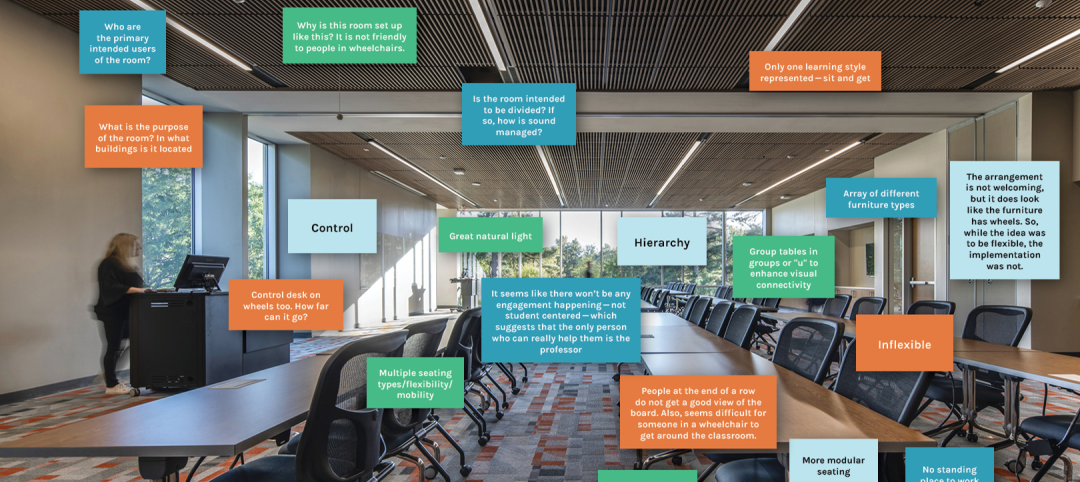On Sept. 15, Auburn University’s School of Hospitality Management held a ribbon-cutting ceremony for the opening of the Tony & Libba Rane Culinary Science Center, a six-floor, 142,000-sf mixed-use building that includes a boutique hotel, culinary and commercial baking labs, a teaching restaurant, a spa, functioning rooftop garden, food hall, café, courtyard and concierge-style hotel suites.
Cooper Carry designed this project, which was built by Bailey-Harris Construction. The construction included mass timber components that were donated by Jimmy Rane, president and CEO of Great Southern Wood in Abbeville, Ala. (The building is named in honor of Rane’s parents.) The Center is part of Auburn’s College of Human Sciences, which offers students opportunities to train with leading chefs and hospitality experts. Ithaka Hospitality serves as the commercial operator in partnership with the College of Human Sciences.
“As a land-grant institution, our mission is to put practical knowledge into the hands of those who can use it, create economic opportunities, and improve the quality of our lives. I believe the Rane Culinary Science Center will do just that,” said Christopher B. Roberts, Auburn University’s president.
Click here for a virtual tour of the building.
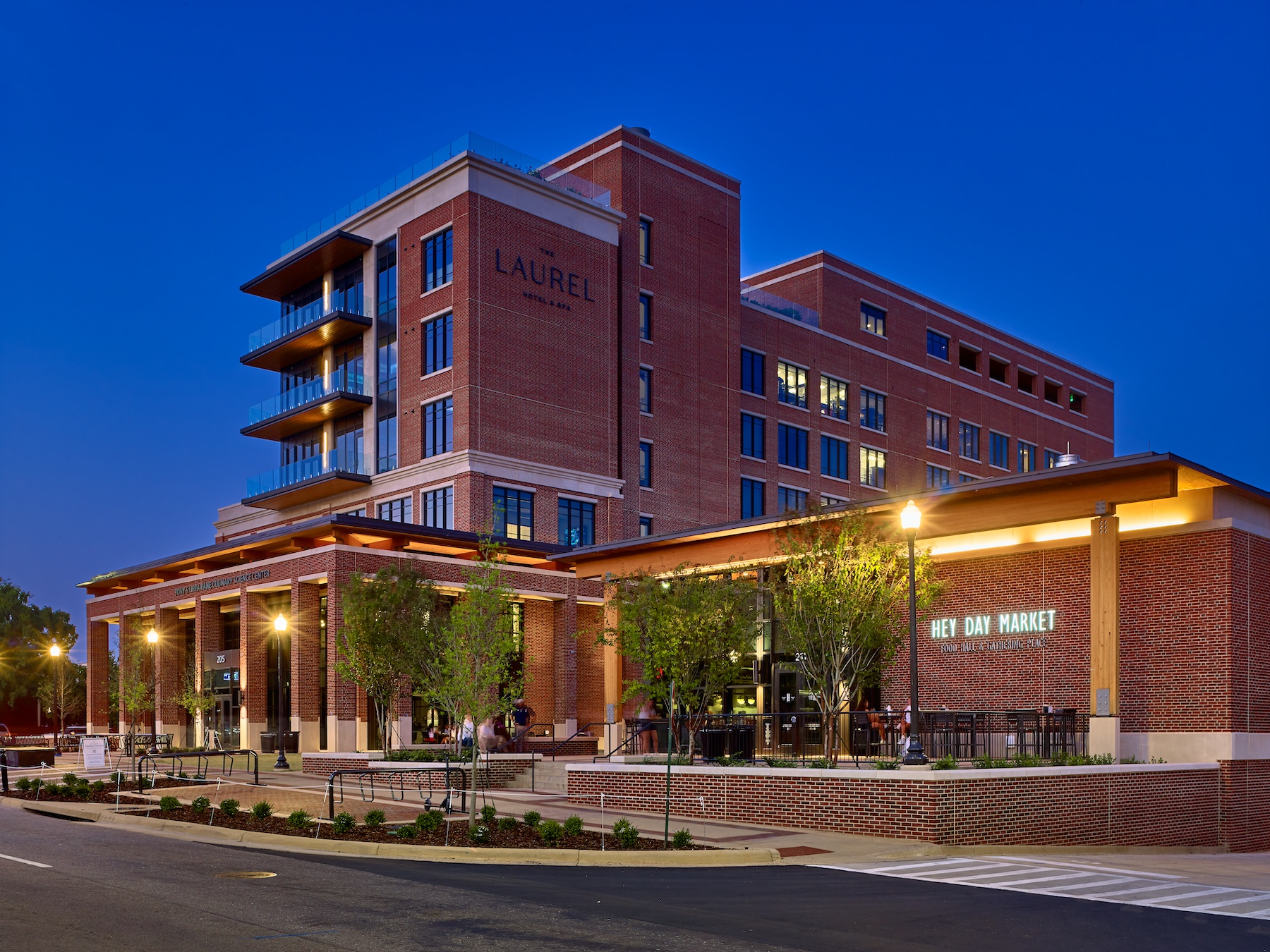
The Center blends academic and revenue-generating elements. The building’s first floor focuses on culinary sciences. A fine-dining restaurant called 1856, and the food hall Hey Day Market, with nine vendor stalls, are on this floor, which also features a two-story wine room with an international stock.
One of the vendor stalls serves as an incubator where students can develop business concepts and even launch start-up operations.
The building’s second and third floors focus on beverage experiences, and include a wine appreciation learning center with 50 tasting tables, distilled beverages classroom, a brewing lab, expo kitchen, and collaborative spaces. The third floor has several adaptive learning classrooms and a culinary lab with AV equipment for honing students’ skills at photographing F&B creations to leverage social media.
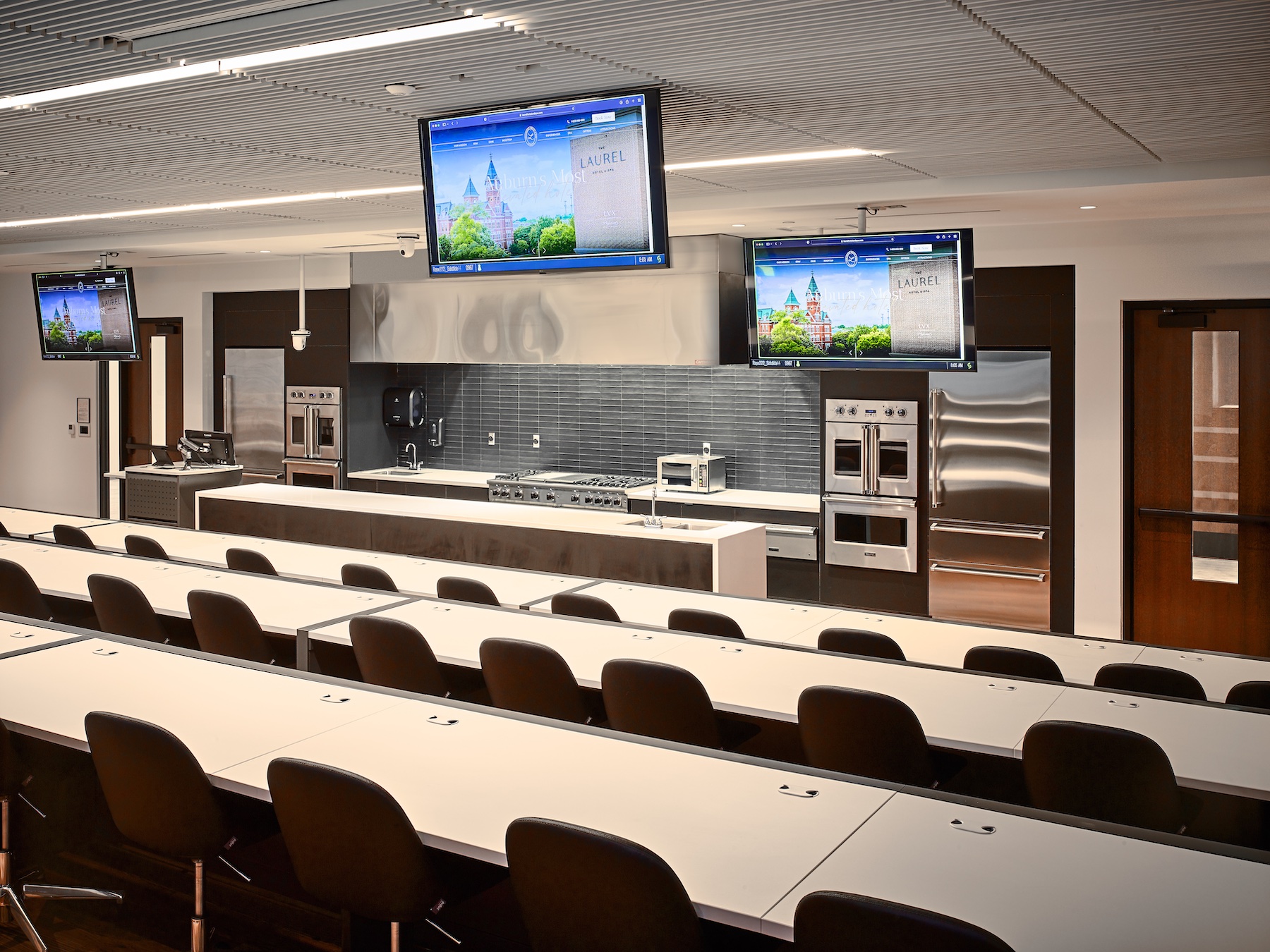
On the top three floors, The Laurel Hotel & Spa offers 16 rooms, 10 suites, six residences, a spa, fitness studio, rooftop pool, and yoga pavilion. The hotel provides students with learning how to operate a hospitality facility. The 41,000-sf rooftop gardens were designed and are maintained by Auburn University’s College of Agriculture’s horticulture department.
In forming the design team, Cooper Carry drew upon the expertise of the firm’s Higher Education Studio, Hospitality Studio, The Johnson Studio, Retail Studio and Science + Technology Studio. Several Cooper Carry designers who are also Auburn University graduates worked on the project.
Related Stories
Higher Education | Apr 17, 2023
Rider University opens a 'Zen Den' for restoring students' mental well-being
Rider University partnered with Spiezle Architectural Group to create a relaxation room for students, dubbed "The Zen Den."
Higher Education | Apr 13, 2023
Higher education construction costs for 2023
Fresh data from Gordian breaks down the average cost per square foot for a two-story college classroom building across 10 U.S. cities.
Urban Planning | Apr 12, 2023
Watch: Trends in urban design for 2023, with James Corner Field Operations
Isabel Castilla, a Principal Designer with the landscape architecture firm James Corner Field Operations, discusses recent changes in clients' priorities about urban design, with a focus on her firm's recent projects.
Market Data | Apr 11, 2023
Construction crane count reaches all-time high in Q1 2023
Toronto, Seattle, Los Angeles, and Denver top the list of U.S/Canadian cities with the greatest number of fixed cranes on construction sites, according to Rider Levett Bucknall's RLB Crane Index for North America for Q1 2023.
University Buildings | Apr 11, 2023
Supersizing higher education: Tracking the rise of mega buildings on university campuses
Mega buildings on higher education campuses aren’t unusual. But what has been different lately is the sheer number of supersized projects that have been in the works over the last 12–15 months.
Contractors | Apr 10, 2023
What makes prefabrication work? Factors every construction project should consider
There are many factors requiring careful consideration when determining whether a project is a good fit for prefabrication. JE Dunn’s Brian Burkett breaks down the most important considerations.
Smart Buildings | Apr 7, 2023
Carnegie Mellon University's research on advanced building sensors provokes heated controversy
A research project to test next-generation building sensors at Carnegie Mellon University provoked intense debate over the privacy implications of widespread deployment of the devices in a new 90,000-sf building. The light-switch-size devices, capable of measuring 12 types of data including motion and sound, were mounted in more than 300 locations throughout the building.
Collegiate Stadiums | Apr 4, 2023
6 examples of modern college training facilities
HOK discusses the future of college training facilities, with six design takeaways derived from a discussion between Dan Radakovich, Director of Athletics at the University of Miami, and Trevor Bechtold, Director, HOK’s Sports + Recreation + Entertainment practice.
Education Facilities | Apr 3, 2023
Oklahoma’s Francis Tuttle Technology Center opens academic center for affordable education and training
Oklahoma’s Francis Tuttle Technology Center, which provides career-specific training to adults and high school students, has completed its Francis Tuttle Danforth Campus—a two-story, 155,000-sf academic building. The project aims to fill the growing community’s rising demand for affordable education and training.
Designers | Mar 28, 2023
Inclusive design requires relearning how we read space
Pulling from his experience during a campus design workshop, David Johnson, AIA, LEED AP, encourages architects to better understand how to design spaces that are inclusive for everyone.


